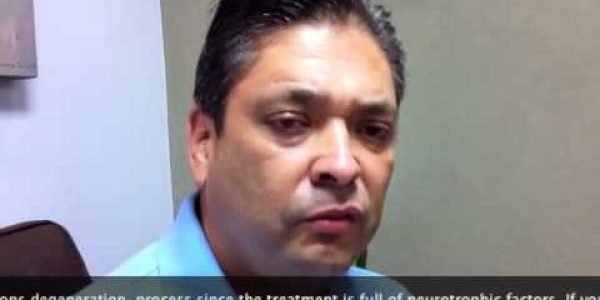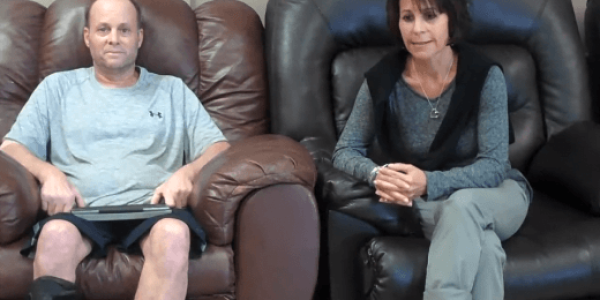Stem Cell Treatment for Amyotrophic Lateral Sclerosis Treatment (ALS). In this video you will learn more about amyotrophic lateral sclerosis, known as ALS and how stem cell treatment and therapy helps in treating progressive neurological illness (motor neuron diesease).
This informative video sheds light on the groundbreaking realm of embryonic stem cell therapy. It unravels the transformative capabilities of stem cells, particularly embryonic ones, and delves into the procedures involved in their application. Furthermore, the video elucidates the intricate process of generating and sourcing stem cells from embryos, highlighting key centers dedicated to advancing embryonic stem cell therapy.
Stem cells have garnered immense attention for their unparalleled ability to regenerate and differentiate into various cell types. Among these, embryonic stem cells stand out due to their remarkable plasticity and potential to develop into virtually any cell within the human body. The video illuminates how this power is harnessed in embryonic stem cell therapy to address a wide spectrum of medical conditions.
The procedures of stem cell treatment are demystified, offering viewers insight into how these cells are utilized to target specific ailments. This includes a comprehensive overview of how embryonic stem cells are employed to rejuvenate damaged tissues and organs, leading to unprecedented therapeutic outcomes. By seamlessly integrating into the body’s biological framework, embryonic stem cells hold the promise of revolutionizing the field of regenerative medicine.
Video Summary:
Amyotrophic Lateral Sclerosis (ALS), also known as Lou Gehrig’s disease, is a rapidly progressing neurological disorder that affects the nerve cells controlling voluntary muscles.
It primarily targets individuals aged 40 to 60, with a higher prevalence in men. The cause of ALS is often linked to genetic mutations, although the exact role of the implicated gene remains unclear.
Common symptoms encompass respiratory issues, involuntary emotional outbursts, speech and swallowing difficulties, muscle weakness, spasms, and balance problems.
Stem cell treatment has emerged as a potential approach to tackle ALS. Stem cells possess regenerative capabilities and the versatility to differentiate into various cell types, including muscle and brain cells.
This therapy aims to restore motor neurons and other affected cells, preserving neural health within the spinal cord and brain. By combining different types of stem cells, promising outcomes have been observed in combating the disease process.
Benefits of stem cell therapies for ALS include improved speech and swallowing abilities, a deceleration in disease progression, heightened energy levels, enhanced mood, and the potential for stem cells to replace damaged cells.
Notable enhancements in motor function, balance, and coordination have also been reported. Importantly, stem cell therapy carries a low risk of complications, offering a potential avenue for repairing nerve injuries associated with ALS.
Find more Patient Stories here to make an Informed Decision
Stem Cell Treatment for ALS – Amyotrophic Lateral Sclerosis
Table of Content
Amyotrophic Lateral Sclerosis (ALS), also known as Lou Gehrig’s disease, is a progressive neurodegenerative disorder that affects nerve cells in the brain and spinal cord, leading to muscle weakness, loss of motor function, and ultimately paralysis. Despite its complex nature, recent advances in medical research have shown promising results in using stem cell therapy to potentially treat ALS and improve the quality of life for patients.
What is ALS?
Amyotrophic Lateral Sclerosis is a rare neurological disease that primarily targets motor neurons responsible for controlling voluntary muscles. As the disease progresses, patients experience muscle weakness, twitching, and eventually lose the ability to control muscle movement.
Current Challenges in ALS Treatment
The exact cause of ALS remains unknown, which makes developing effective treatments challenging. Traditional approaches focus on managing symptoms, but there is no cure for the disease. This is where stem cell therapy comes into play.
The Promise of Stem Cell Therapy
In the world of medical science, few discoveries have held as much promise and excitement as the potential of stem cells. These tiny, versatile entities possess the remarkable ability to develop into a variety of cell types, offering a beacon of hope for addressing previously untreatable conditions.
Harnessing the Potential of Stem Cells
Stem cells are undifferentiated cells with the remarkable ability to develop into various cell types. This unique characteristic has captured the interest of medical researchers as a potential solution for ALS treatment. Stem cells can be manipulated to differentiate into motor neurons, which are the cells primarily affected by ALS.
Types of Stem Cells Used
Researchers primarily use two types of stem cells for ALS treatment: embryonic stem cells (ESCs) and induced pluripotent stem cells (iPSCs). ESCs are derived from embryos, while iPSCs are reprogrammed adult cells. Both have shown promise in laboratory settings for generating motor neurons to replace damaged ones in ALS patients.
Administration of Stem Cells
Stem cells can be administered directly into the spinal cord or the surrounding cerebrospinal fluid. This targeted delivery aims to replace the damaged motor neurons and support the regeneration of healthy ones.
Considerations and Future Implications
The journey towards harnessing the potential of stem cell therapy for ALS is not without its ethical considerations. One of the primary concerns revolves around the use of embryonic stem cells.
Ethical Considerations
The use of embryonic stem cells raises ethical concerns due to the destruction of embryos. This has led to a shift towards iPSCs, which bypass this ethical dilemma while offering similar therapeutic potential.
Personalized Medicine
Stem cell therapy has the advantage of being tailored to individual patients. This personalized approach increases the chances of success by minimizing the risk of immune rejection and optimizing treatment outcomes.
Collaborative Research Efforts
The field of stem cell research for ALS is rapidly evolving, with researchers worldwide collaborating to unravel the full potential of stem cell therapy. These collaborative efforts enhance knowledge sharing and accelerate progress.
Final Thoughts
Stem cell treatment holds significant promise for addressing the challenges posed by ALS. While the research is still in its early stages, the results from both animal studies and ongoing clinical trials are optimistic. As scientific understanding deepens and technology advances, stem cell therapy could potentially transform ALS treatment, offering hope to patients and their families.
FAQs about Stem Cell Treatment for ALS
Here are some FAQs about Stem Cell Treatment for ALS
What is the underlying cause of ALS?
The exact cause of ALS is not yet fully understood, but genetic and environmental factors are believed to contribute.
Are there any existing treatments for ALS?
Currently, there is no cure for ALS. Treatment mainly focuses on managing symptoms and improving the patient’s quality of life.
How does stem cell therapy differ from traditional treatments?
Stem cell therapy aims to replace damaged motor neurons with healthy ones, potentially addressing the root cause of the disease.
What is the potential timeline for stem cell therapy to become a standard ALS treatment?
While ongoing research is promising, it’s challenging to provide an exact timeline. The therapy’s availability depends on successful clinical trials and regulatory approvals.
Are there any risks associated with stem cell treatment for ALS?
Like any medical intervention, stem cell therapy carries some risks. However, clinical trials are designed with safety measures in place to minimize these risks.
Book Appointment
Join the ALS Revolution! Discover the potential of stem cell therapy for ALS. Stay informed, support research, spread awareness, advocate for policy, participate in trials, offer support, and share hope. Together, let’s transform lives. Access Now






